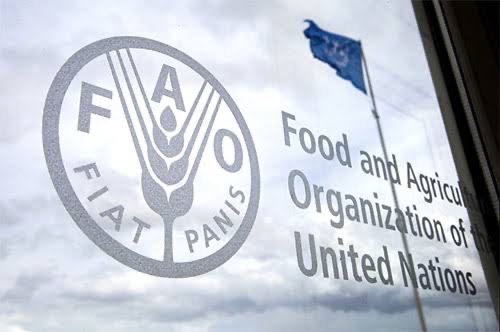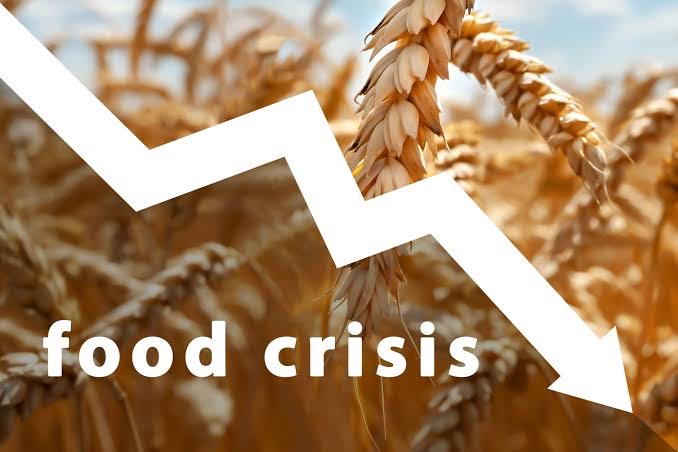The Food and Agriculture Organization (FAO) on Tuesday revealed that over 31.8 million Nigerians across the country suffer from severe food insecurity, with malnutrition worsening among women and children, drawing renewed attention to the widespread hunger in Nigeria.
In its 2024 Executive Harmonization Report released in collaboration with other development partners, FAO blamed the problem on rising food prices caused by the removal of fuel subsidies and security issues, and advocated a multi-sectoral approach to combat food insecurity.
From transportation to food supply, gasoline is oxygen for most businesses in the country. Since the removal of subsidies by President Bola Ahmed Tinubu on May 29, 2023, pump prices have risen by more than 300 percent, sparking record inflation. The situation has been further aggravated by insecurity, especially in the north, forcing many locals to abandon their farms. SBM Intelligence, an Africa-focused market and security intelligence consultancy, painted a grim reality in its latest report released on Thursday. The report revealed that 1,056 Nigerians were killed and 7,568 kidnapped in 1,130 incidents between July 2023 and June 2024, with 1,048 million naira paid as ransom to kidnappers.
Commenting on the SBM report, former Director-General of the Department of State Services (DSS), Mike Ejiofor, said the development was “dangerous for Nigeria’s economy” and also to other sectors of life, including food security.
He called on the government to adequately fund and train security agencies and declare a state of emergency on the grounds of insecurity by collaborating with other foreign interests and groups.

Food security is achieved when all people, at all times, have economic, social and physical access to nutritious, safe and sufficient food that meets their food preferences and nutritional needs. However, this is not the case for over 133 million Nigerians who live in multidimensional poverty. Policy documents and expert views reviewed by Weekend Trust reveal that multiple factors are at play in this worsening scenario and how relevant stakeholders can work together to address them.
Uncertainty plus subsidy cuts
The impacts of climate change have led to alarming floods, droughts, changes in rainfall patterns, intense storms and soil nutrient deficiencies, posing serious risks to food security.
The Nigerian Economic Summit Group (NESG) in its 2023 report titled, ‘Climate change impacts on food security and nutritional incomes in Nigeria: Challenges and Policy Options,’ lamented the systematic decline in food security in Nigeria.
The report noted that the number of undernourished Nigerians has risen sharply since 2012, exceeding 26 million in 2021. The report also noted that the number of Nigerians affected by food insecurity has steadily increased from 20 million in 2014 to 39 million in 2021 due to the adverse impacts of climate change on agricultural crops. “The percentage of arable land equipped for irrigation has been less than 1 per cent. However, it remained at 1 per cent between 2008–2010 and 2017–2019. This shows the limited attention accorded to climate change and food security issues in Nigeria,” the report added.
The government and other stakeholders have been advised to promote alternative agricultural practices, such as replenishing shrinking water bodies, to help farmers who cannot afford to install irrigation facilities. This would not only increase agricultural productivity but also reduce food prices, the report said.
“Agricultural methods or smart food systems less vulnerable and resistant to climate change should be adopted to promote food security and sustainable nutritional outcomes. Research should be tailored towards developing animal and crop varieties with short maturity periods that can be minimally affected by reduced rainfall and extreme temperature.

“The propagation of drought-resistant grasses is required in areas affected by drought. This will go a long way to decline the tide of pastoral north-south migration patterns witnessed over the years in Nigeria and reduce the farmers-herdsmen threat to the peace and security of farmers in the Middle Belt and other regions of the country,” he continued.
Andrew Woghiren, Founder and Managing Director of Sustainable Insights Limited, acknowledged the NESG report, noting that water, energy and food are essential to solving the hunger crisis in Nigeria and across Africa.
“Energy is the principal limiting factor in enhancing agricultural production. Policies that balance the drought-proofing of rain-fed agriculture and irrigation development are needed,” he told Journalists.
Nestlé CWAR Agriculture Manager Alidu Amadu, said achieving food security requires promoting regenerative agriculture by adopting modern technologies and best agricultural practices to increase crop yields.
Call to action
Earlier this week, at a press conference in Abuja, leading agricultural organization Extension Africa highlighted the role of modern agribusiness extension services in promoting sustainable agriculture.
The organization’s executive director and co-founder, Tajudeen Yahaya, warned that declining food production and rising prices would continue without agricultural extension services – services that provide farmers with technical advice and provide the inputs and services they need to support agricultural production – given. Yahaya lamented the severe shortage of extension agents who play a key role in advising farmers and stakeholders in various value chains on best agricultural practices to increase productivity. He added that public-private partnerships are key to addressing these challenges.
“The challenges we always have with the public extension system are threefold. First, we have only one agent for every 10,000 farmers, making it nearly impossible for such an officer to effectively reach all farmers. Secondly, many of our extension workers, employed back in the 1990s, are retiring, which means that the current ratio might worsen to one agent for 20,000 farmers in the next five years if nothing is done,” Yahaya explained.
Speaking at a recent programme organised by the Lagos State Muslim Community, an agricultural expert, Ibrahim Olayeni, advised people of the state to embrace urban agriculture and promote agricultural practices to increase food production.
“Urban farming involved taking advantage of every little space and resource to grow crops. Some of its benefits include increased food production and provision of job opportunities. Crops such as tomatoes, pepper, carrots, onions, okra, cabbage, lettuce and yam can be cultivated under urban farming,” he said.
What the government is doing
At the Joint Review Meeting on Food System Implementation in Nigeria, where FAO released the report, the Permanent Secretary, Ministry of Budget and Economic Planning, Dr. Dominic Emeka Obi, said the purpose of the meeting was to discuss and update Ministries and Departments (MDAs) on the status of implementation of activities to implement food transformation in Nigeria.
In a statement by the Ministry’s Director of Press and Public Relations, Julie Osagie-Jacobs, Obi expressed confidence that the joint efforts of development partners would continue to lead to innovative solutions to strengthen food systems. The Federal Government also said it is intensifying efforts to forge a global partnership with the United Nations World Food Programme (WFP) to enhance food security and improve agricultural productivity in the country.
Minister of Finance and Coordinating Minister of the Economy, Mr Wale Edun, disclosed this while receiving a high-level WFP delegation led by the newly appointed Regional Director, Mr Chris Nikoi, in Abuja. He added that the partnership is in line with President Tinubu-led government’s Renewed Hope Agenda
“The engagement further provided an opportunity for the WFP delegation to highlight the numerous opportunities for partnership and also expressed their readiness to support Nigeria’s agricultural sector through collaborative ventures.
The Minister, in a statement, said, “Key among these initiatives are service delivery programmes focused on the provision of fertilizers and seeds, which are essential for enhancing farming output and ensuring food security,” and assured the delegation that the Ministry would take necessary steps to facilitate the implementation of the proposed initiative.
On Thursday, Deputy Chairman of the Federal Competition and Consumer Protection Commission (FCCPC), Tunji Bello, imposed a one-month suspension on traders and market associations involved in exploitative price gouging of goods and services. He said the measure is an antidote to the growing trend of unfair pricing of consumer goods and services and the evil practices of market associations.
But experts pointed out that the government needs to go beyond such coercive measures and address the underlying issues, such as insecurity, high fuel costs and multiple taxes, that are causing food inflation.
“Although the federal government has a point on cartels fixing prices, the only way, however, for prices to come down is to address the issues causing such. For instance, the high cost of transport occasioned by the removal of fuel subsidy has not been addressed, and the CNG buses to be rolled out to cushion the effects are not here yet.
“Secondly, insecurity has made farming difficult for farmers, and thirdly the government has been imposing one form of tax and another. Therefore, nothing can happen in terms of food prices if the government can’t address the critical issues,” said development expert Kunle Daramola.


































